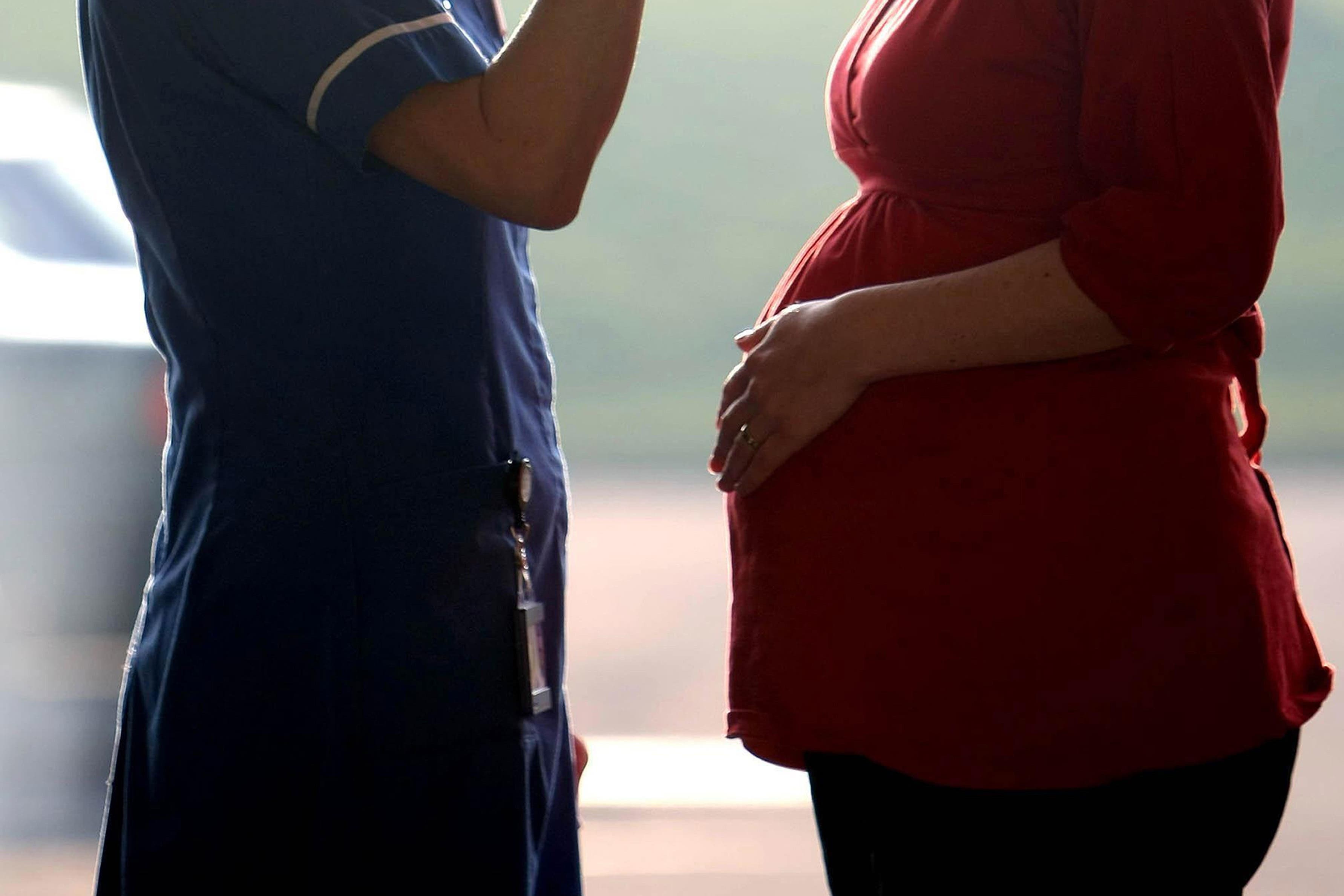Call for national guidelines on discussing past trauma in maternity appointments
Researchers estimate one in three pregnant women in the UK have suffered trauma, such as abuse or violence, in childhood or adulthood.

Your support helps us to tell the story
From reproductive rights to climate change to Big Tech, The Independent is on the ground when the story is developing. Whether it's investigating the financials of Elon Musk's pro-Trump PAC or producing our latest documentary, 'The A Word', which shines a light on the American women fighting for reproductive rights, we know how important it is to parse out the facts from the messaging.
At such a critical moment in US history, we need reporters on the ground. Your donation allows us to keep sending journalists to speak to both sides of the story.
The Independent is trusted by Americans across the entire political spectrum. And unlike many other quality news outlets, we choose not to lock Americans out of our reporting and analysis with paywalls. We believe quality journalism should be available to everyone, paid for by those who can afford it.
Your support makes all the difference.National guidelines are needed to help maternity care professionals navigate discussions with pregnant women about past traumas, experts have said.
Their study, published in the journal Plos One, also found that while talking about previously experienced traumas can be valuable, they can also trigger painful memories if not approached sensitively.
The authors also raised concerns about the support available for professionals who may not feel equipped to explore challenging topics such as domestic or sexual abuse, childhood trauma and birth trauma without adequate guidelines or referral pathways.
Joanne Cull, a midwife and PhD student at the University of Central Lancashire’s School of Community Health and Midwifery, who is corresponding author on the study, said: “As awareness of the long-term effects of trauma on health and wellbeing has grown, there has been a move toward asking pregnant women about previous trauma, usually at the first appointment.
“No national guidance on this has been published in the UK so NHS Trusts have implemented this on a piecemeal approach.”
For the study, the researchers reviewed all the published research in this area, which includes 25 research papers with the views and experiences of 1,602 women and 286 health care professionals.
The team focused on UK data and studies in comparable countries, mainly Australia and the US, published between 2001 and 2022.
Ms Cull, who is funded by a NIHR (the National Institute for Health and Care Research) Charity Partnership Fellowship with the Wellbeing of Women, said their estimates show that one in three pregnant women in the UK have suffered trauma, such as abuse or violence, in childhood or adulthood.
Based on the findings, she and the team are developing guidelines for routine discussion of previous trauma in the perinatal period.
Ms Cull said: “Our review suggests specific areas of training that are necessary for maternity care professionals to feel confident in supporting women to share their trauma histories.
There is no point asking such sensitive questions if you don't know where to signpost parents for support and this is where national guidelines would be useful
“The focus of trauma discussions should not be on obtaining specific details of past trauma, but rather exploring what resources, support, and adjustments to their care would be helpful.
“There is no point asking such sensitive questions if you don’t know where to signpost parents for support and this is where national guidelines would be useful.
“In addition, it is important that women are forewarned of the discussion, including any limits to confidentiality, and that disclosure of past trauma is entirely voluntary.”
The findings also suggested that many pregnant women are unaware of the extent of the trauma they have suffered, or its impact on their lives.
Ms Cull added: “Women often feel especially vulnerable during pregnancy and so discussions at this time can be even more difficult.
“National guidelines and specific training for staff on this issue would benefit not only parents, but also clinicians, who can find trauma discussions challenging.”
Kim Thomas, chief executive of the Birth Trauma Association, said: “We know that previous trauma makes women vulnerable – research shows that survivors of sexual abuse, for example, are 12 times more likely to experience birth as a traumatic event.
“Women in this situation need to be supported sensitively so that their experience of birth is a positive one, not one that leaves them re-traumatised.
“We believe that Joanne Cull’s research into trauma-informed care is immensely valuable in identifying how caregivers can be trained to help women to disclose trauma, to respond with sensitivity and to support women in a way that minimises the risk of them experiencing birth as traumatic.”